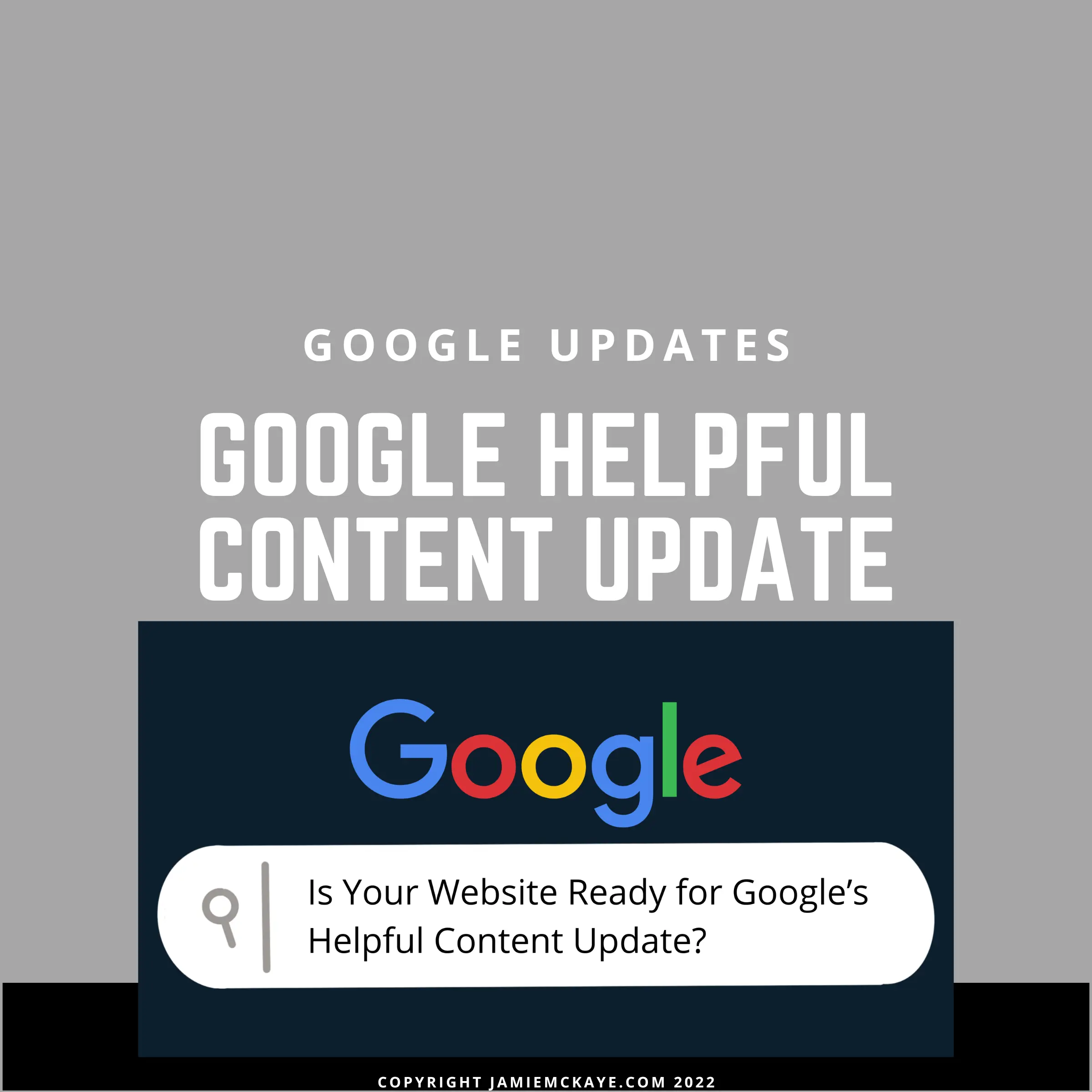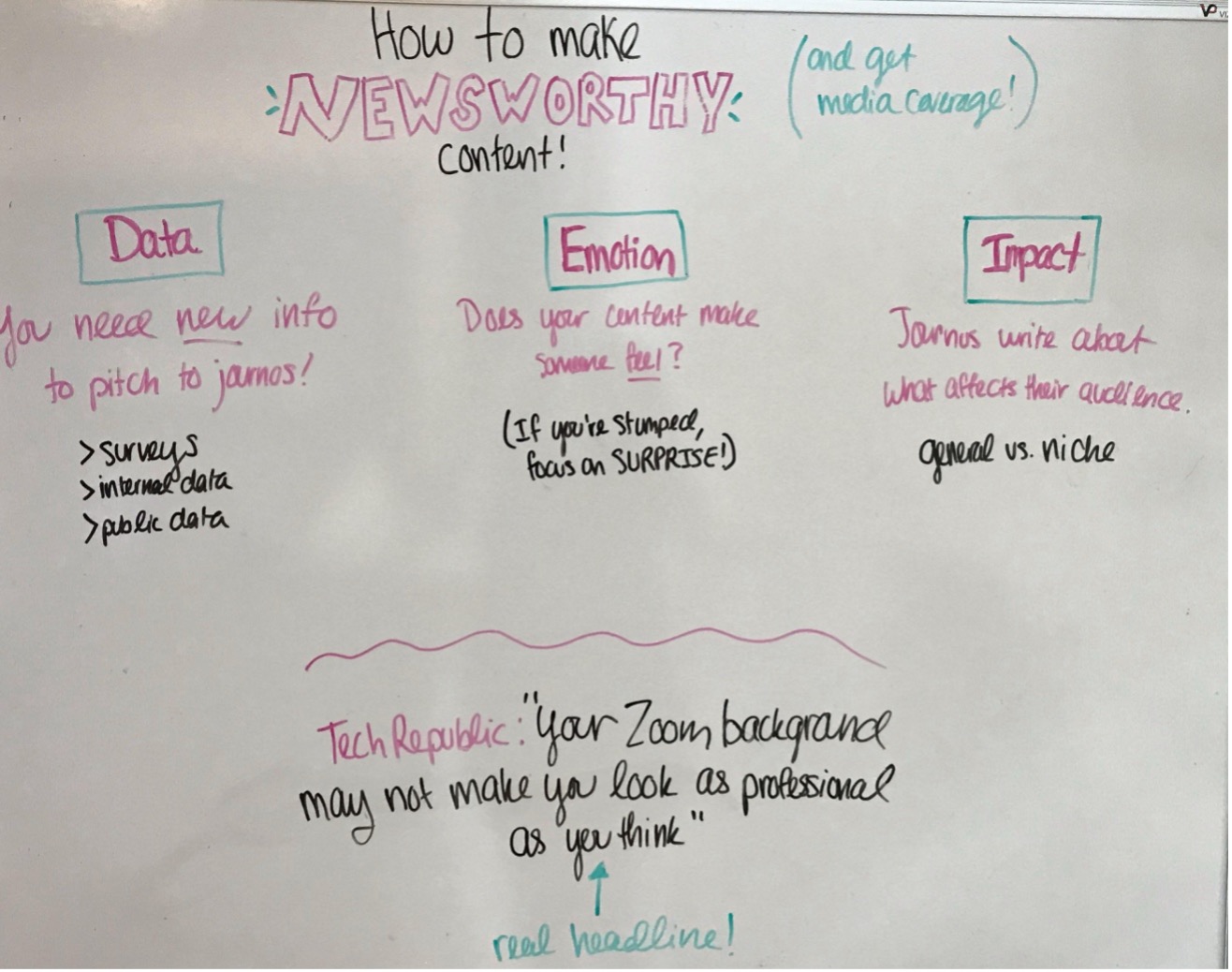Google Helpful Content Update: Everything You Need to Know

Back in late August, Google gave us the heads up that the wheels had started to turn for the Helpful Content Update and that the rollout would take up to a fortnight to complete.
The gatekeepers of all things online were good to their word and now, a month or so down the line the helpful content algorithm update is complete.
There are clear rewards for content that puts ‘people-first’, those creating content just for search engines, take note!
But hold on... How do you define content that puts people first and how do you go about making sure your (site-wide) content qualifies as such?
Google’s Search Central Blog released some helpful content of their own back on August 18th in the form of an in-depth guide on the things content creators should know.
I think it’s time I did the same!
Here are some of the key takeaways from The Helpful Content Update notes and what they might mean for us.
Stay on Target
In all likelihood, you are good at what you do. That means you have an area of expertise:
“Do you have an existing or intended audience for your business or site that would find the content useful if they came directly to you?”
Google is hinting at one thing here: stick to your area of expertise.
Many creators fall prey to the temptation of creating content that capitalises on high volume keywords outside of their field of expertise.
Even if that content might be incredibly helpful to someone interested in that topic, if the topic isn’t linked to your area of expertise then your actual audience is unlikely to find it useful.
It might not be an intentional act on your part but try and keep things within your area of expertise by asking yourself these questions:
- Is your content really crafted for humans that might visit your site, or is it to attract people from search engines?
- Have you picked a topic simply because it’s trending, would you otherwise write about this topic for your audience?
- Are you writing about a niche topic you wouldn’t normally cover, because you are trying to pull in search traffic?
You have experience, demonstrate it.
Google likes it when you write about things you’ve experienced first-hand:
“Does your content clearly demonstrate first-hand expertise and a depth of knowledge (for example, expertise that comes from having actually used a product or service, or visiting a place)?"
Creating content purely for the purpose of search engine friendliness can involve writing about services or products you have never used. That is often where affiliate links come in to play, acting as a nice little earner for the author.
But without first-hand experience, is that content as useful as it might otherwise be?
Google believes not...
How do you demonstrate genuine experience of a product, a service or a place?
- How about deeper insight and images. These are strong ways to avoid simply summarising what others have said before you without adding anything new or valuable.
Focus on your purpose, don’t mix and match
“Does your site have a primary purpose or focus?”
“Are you producing lots of content on different topics in hopes that some of it might perform well in search results?”
Google ask these questions time and again, the implication is clear, websites should not try to be all things to all people; all the top ranking ones have a niche.
Sites that try to be all things to all visitors not only end up being hard to navigate, they are also a major challenge for search engines to understand.
Build your site around one, specific niche. If you want to diversify you can always build another site and another and so on, to create a resource for different topics.
Providing sufficient answers to questions is important
“After reading your content, will someone leave feeling they’ve learned enough about a topic to help achieve their goal?”
Be assured, your searchers have questions and plenty of them. Address them with helpful content that helps them accomplish something or teaches them something new.
Creating words simply for a search engine nearly always involves writing a lot of words, with very little value.
Writing for the people who visit your site is different. They’ll have questions you can answer, concerns that you can resolve. These are the reasons why they have found you in the first place.
Ask yourself:
- Does your web page give users what they are looking for or will they need to search again for something better?
- Are you aiming for a certain word count? Maybe you have heard that passing a magic number of words is good for SEO (this is a myth, although there's some truth that longer-form content provides more value and deeper insight - in some cases)
The overall reader experience is important to Google
“Will someone reading your content leave feeling like they’ve had a satisfying experience?”
That means it has to be important to you too and this is very important.
Providing the right experience through helpful content is not always easy. You can tick every box above, meet every criteria and still fall short in providing genuine satisfaction for your audience, leaving them looking for more.
Take product reviews for example; you could go to great lengths to ensure you have relevant experience and first-hand familiarity of a product. This should enable you to create textual content that few other sites could match.
But those other sites might have combined their text with images, videos or visual demonstrations to deliver a fuller, more easily disseminated experience.
Keep it factual
“Does your content promise to answer a question that actually has no answer, such as suggesting there’s a release date for a product, movie, or TV show when one isn’t confirmed?”
It might be tempting to offer information that your competitors haven’t. Product release dates, price points, and the latest Marvel series, things like that are big news.
But if it’s only a rumour, Google urges you to say so, don’t try to answer a question that simply doesn’t have a confirmed answer.
This is important, not just to comply with Google’s Helpful Content Update, but also for gaining and maintaining the trust of your audience.
The Low-down
“Over the coming months, we will also continue refining how the classifier detects unhelpful content and launch further efforts to better reward people-first content.”
The Helpful Content Update has now completed rollout, making it a great time to assess any impact it might have had on your site’s rankings.
The update affects all worldwide searches in English and is soon to expand into all languages. As quoted above, this update won’t be the only one, Google will look to continue refining its efforts to track down and deal with content that is considered unhelpful.
If you already follow Google’s advice around core updates and product reviews, you may already be in the perfect position to benefit from the helpful content update too. Have anymore questions? Let me know on my twitter @jamiemckaye.





Comments